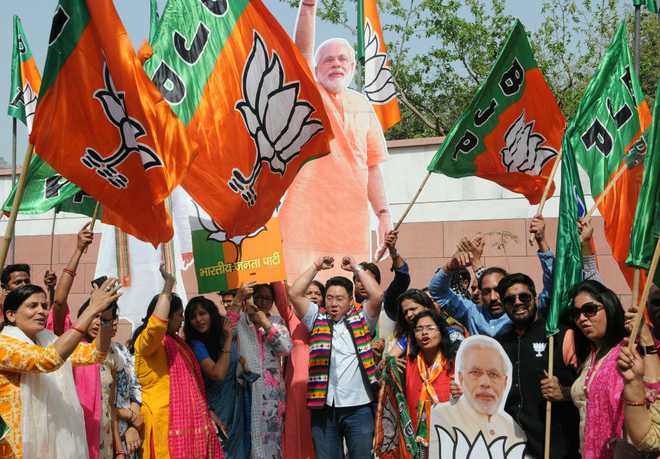 NEW DELHI: Niti Aayog has laid down norms for a public-private partnership model with a view to setting up additional infrastructure for the treatment of non-communicable diseases at district hospitals at predetermined rates.
NEW DELHI: Niti Aayog has laid down norms for a public-private partnership model with a view to setting up additional infrastructure for the treatment of non-communicable diseases at district hospitals at predetermined rates.
Under the PPP model, the private sector would be provided with space for setting up facilities for treatment of cardiac, oncological, and pulmonary diseases by the state governments within the premise of existing district hospitals.
Releasing the guidelines and Model Concessionaire Agreement (MCA) for ‘Public-Private Partnership for Non-Communicable Diseases’ (NCD), Niti Aayog member V K Paul said the cost of treatment under the PPP model would be the same as specified under the Ayushman Bharat-Pradhan Mantri Jan Arogya Yojana (PMJAY) or states insurance schemes.
States which do not have such insurance packages could use CGHS package rates for the period when such insurance rates are not available, he added.
The guidelines suggest that the private partner will invest in upgrading, building and deploying human resources.
“It is expected that the NCD care facility co-located at the district hospital will contribute towards improving access to the above mentioned NCD services at the government hospitals at the district level,” the guidelines said.
“All services in the NCD care facility will be offered by a single entity, be it a trust, company, consortium etc under PPP arrangement,” it added.
The guidelines suggest PPP models for delivering hospital-based clinical services. The PPP model will make specialized NCD services available and accessible at the district level.
It will also ensure availability of specialists at the district level, the document added.
The NCD care facility will maintain uniform tariff for all patients.
“The state government will reimburse the payments to the private sector on behalf of all patients referred by the state government who receives services at the NCD care facility,” the guidelines document pointed out.
Paul said India needs more investments, as the supply side issues in secondary and tertiary care are looming, adding, “We are relying on time-tested models and applying them to the area of NCDs, which have been neglected for a long time.”
Also speaking on the occasion, Niti Aayog CEO Amitabh Kant said that private participation in healthcare will encourage equitable growth, as well as provide for world-class infrastructure, specialists and patient care through transparent and competitive bidding.
The document noted that although there have been major improvements in some health indicators such as life expectancy at birth, non-communicable diseases (NCDs) have emerged as the leading cause of morbidity and mortality, contributing to 55 per cent of overall disease burden and more than 62 per cent of deaths in the country.
Despite attempts to increase the government health spending, over the years, the government health expenditure to total health expenditure has been in the range of 1-1.2 per cent.
Noting that a large number of district hospitals have not been able to provide services for NCDs, the document said, “District hospitals as an institution needs to strengthening particularly to shift focus from reproductive and child health services and communicable diseases to provide services for NCDs by leveraging the private sector particularly in unserved areas.”
In order to have a robust, scalable and a sustainable PPP model for providing services for NCDs from the private sector by the district hospitals, Niti Aayog, MoH&FW and the World Bank have jointly developed a comprehensive MCA for the provision of prevention and treatment services for NCDs at the district level, especially in tier 2 and tier 3 cities.
These PPP guidelines and MCA target the critical gaps that can be filled by ‘strategic purchasing’ in public health services highlighted in the National Health Policy 2017, the document noted. PTI






